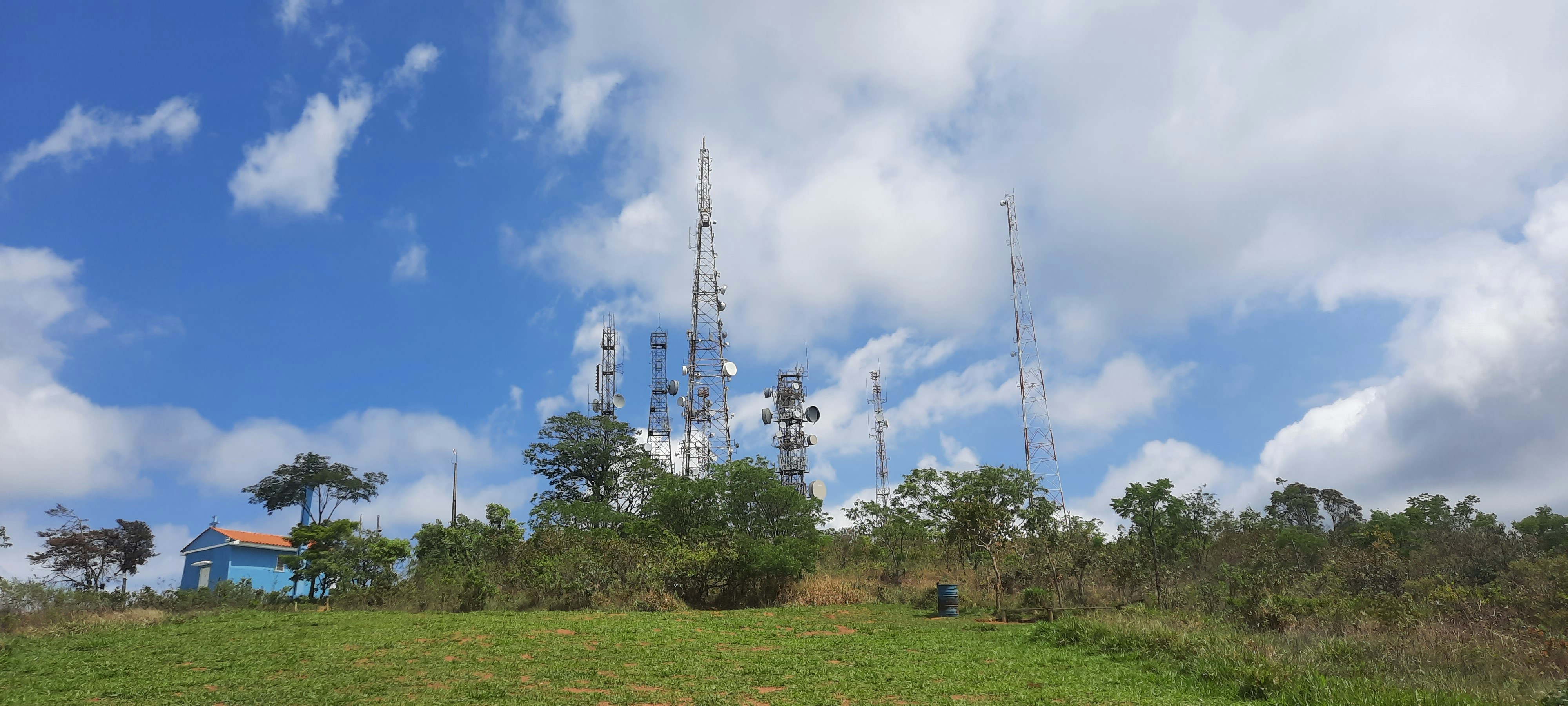Adjusted Gross Revenue (AGR) dues represent a significant financial burden for telecom operators in India, including Vodafone Idea. The AGR is essentially a calculation used by the Telecom Regulatory Authority of India (TRAI) to determine the revenues earned by telecom companies, which are then taxed as part of their license agreements. This revenue comprises both core telecommunications services as well as non-core services, creating a broad base of financial accountability. When the Supreme Court of India ruled in 2019 that telecom operators must pay AGR dues stretching back several years, it imposed a severe financial impact on firms like Vodafone Idea, exacerbating their pre-existing monetary strains.
Vodafone Idea, which is one of India’s largest telecom service providers, has faced growing financial challenges in the wake of this ruling. The company, formed from the merger of Vodafone India and Idea Cellular, has been grappling with staggering debt levels, intense competition from rival operators, and a declining customer base. These factors have contributed to a precarious liquidity situation, making it increasingly difficult for Vodafone Idea to sustain its operations. Despite efforts to secure additional funding and partnerships, the financial outlook remains uncertain.
The recent remarks from the Communications Minister emphasize the government’s stance that Vodafone Idea must independently address its financial obligations, including the hefty AGR dues. This position underscores the ongoing scrutiny and challenges within the telecommunications sector—where regulatory compliance and financial health are crucial for survival. As Vodafone Idea continues to navigate its fiscal responsibilities, it becomes paramount to assess how these AGR dues can shape its future strategy and operational viability in a competitive market landscape.
Minister Scindia’s Firm Stance on AGR Waiver
Communications Minister Jyotiraditya Scindia has taken a definitive position regarding the demands for a waiver of Adjusted Gross Revenue (AGR) dues by telecom companies, particularly Vodafone Idea. His statements reflect a hardline approach, emphasizing that there will be no concessions granted to any telecom operator concerning AGR obligations. This decisiveness comes in the wake of the Supreme Court’s ruling, which clarified the legal landscape surrounding these dues and reaffirmed the stringent financial responsibilities of telecom companies operating in India.
Scindia articulated his commitment to ensuring that all telecom firms uphold their financial liabilities, indicating that the government has no intentions to bend the rules established by the highest court. His stance is particularly significant given the ongoing financial distress faced by Vodafone Idea, which has sought relief amid declining revenues and intense competition in the sector. However, Minister Scindia reiterated that policies must align with the legal framework established by the Supreme Court, leaving little room for negotiation or partial waivers.
The Minister’s firm position is underscored by a broader government policy aimed at stabilizing the telecommunications sector while maintaining a level playing field for all operators. By affirming that Vodafone Idea must stand on its own merits, Scindia is sending a clear message that the government expects the company to navigate its challenges without relying on state intervention. This includes devising operational strategies that enhance efficiency and bolster revenue generation.
As these developments unfold, the clarity and firmness in Scindia’s approach may ultimately shape the future of the telecom sector in India, dictating the dynamics of competition and the fiscal health of its various stakeholders. The government, under Scindia’s guidance, appears resolute in prioritizing long-term sustainability over short-term bailouts, reflecting a commitment to resilient organizational practices within the industry.
No Increase in Government Equity in Vodafone Idea
Recently, the Communications Minister, Ashwini Vaishnaw, addressed the pressing issue regarding the financial sustainability of Vodafone Idea amidst its ongoing challenges. In his statements, Minister Vaishnaw clarified that the government holds a 49% equity stake in Vodafone Idea, a position established during the company’s restructuring process. However, despite this substantial involvement, he firmly asserted that the government does not intend to increase its equity share in the telecom operator. This decision underscores the minister’s belief in the need for the company to manage its own finances effectively.
The minister emphasized that Vodafone Idea must be accountable for its own fiscal strategies and operational outcomes. According to Vaishnaw, it is crucial for the company to implement robust business practices and innovate to regain its foothold in the highly competitive telecommunications market. The government’s position reflects a clear boundary between state responsibility and corporate management, suggesting that external intervention or increased governmental equity is not the solution for the company’s struggles.
Vaishnaw’s comments highlight a significant shift towards a more self-reliant approach within the telecom sector. He pointed out that the financial framework established for Vodafone Idea is designed to encourage the company to optimize its operations and revenue generation without relying on government support. The telecommunications market is known for its volatility and rapid changes, and this necessitates that Vodafone Idea adopts a proactive and strategic stance in addressing its financial burdens. The government’s stance can be seen as a call for greater accountability and responsibility on the part of Vodafone Idea’s management as it navigates its current financial landscape.
As Vodafone Idea charts its course toward potential recovery, it will need to prioritize sustainable practices and financial discipline, thereby reflecting the government’s commitment to allowing market dynamics to dictate corporate strategies without undue external influence.
Vodafone Idea’s Financial Reporting and Response Strategies
Vodafone Idea, one of India’s prominent telecommunications companies, has recently released its financial reports for the fiscal year. The findings primarily indicate a substantial net loss, reflecting the ongoing challenges in an intensely competitive market and the burden of legacy costs. These losses highlight the urgency for the company to adopt effective financial response strategies to ensure its operational sustainability.
In the latest quarter, Vodafone Idea reported a net loss that exceeded analysts’ expectations, amplifying concerns among investors and stakeholders. The primary drivers of the loss were increased operational costs and the ongoing decline in average revenue per user (ARPU). The financial situation underscores the necessity for the company to re-evaluate its existing business model and implement strategies that can foster revenue generation and cost management.
In response to the pressing financial circumstances, Vodafone Idea’s board has made pivotal decisions aimed at improving liquidity and financial health. The company has announced plans to raise funds through both public offerings and private placements. This move is seen as critical to bolster its capital structure, allowing for enhanced investment in infrastructure and technology, ultimately aiming to improve service quality and coverage.
The urgency of the financial situation cannot be overstated, as Vodafone Idea aims to remain viable in a fiercely competitive telecom landscape. By actively pursuing alternative financing avenues, the company hopes to navigate its financial difficulties while maintaining operational continuity. Addressing the challenges posed by the current financial scenario is crucial for Vodafone Idea, not only for survival but also for future growth in the rapidly evolving telecommunications sector.
Corporate Responsibility for Financial Health
The discourse surrounding corporate accountability has been significantly highlighted in recent discussions about Vodafone Idea and the telecommunications sector. Communications Minister Jyotiraditya Scindia emphasized the necessity for corporations to manage their financial stability independently, asserting that they must not rely on government bailouts or relief. This perspective illustrates a broader expectation for businesses to exhibit sound fiscal management, ensuring that their profits, losses, and overall balance sheets reflect a sustainable operational model.
In the current economic landscape, it is imperative that companies, particularly those operating in competitive sectors such as telecommunications, adhere to principles of corporate responsibility. This extends beyond mere compliance with regulatory requirements; it necessitates a proactive approach to financial health that promotes transparency, accountability, and ethical practices. Vodafone Idea, like its peers, faces an imperative to navigate its financial challenges without seeking external intervention, thereby fostering an environment where businesses are held accountable for their operational decisions.
Moreover, the emphasis on such corporate responsibility is not solely about maintaining a healthy balance sheet; it also reflects the expectations of stakeholders, including investors, customers, and employees. Companies are increasingly held accountable for their societal impacts, thereby necessitating a comprehensive strategy that encompasses both financial performance and social responsibility. The expectation for Vodafone Idea to operate autonomously aligns with global trends advocating for corporate entities to prioritize long-term sustainability over short-term gains.
In summation, the stance taken by Minister Scindia underscores the critical need for companies to embrace a philosophy of self-reliance regarding their financial health. By doing so, they will not only secure their operational viability but also contribute positively to the wider economic framework in which they operate. This approach ultimately fosters an environment characterized by responsible corporate governance and enhanced stakeholder trust.
The Role of Government in Corporate Operations
The perspectives of government officials often shape the discourse surrounding corporate operations, particularly in tumultuous sectors like telecommunications. In light of recent developments, Communications Minister Jyotiraditya Scindia has articulated a clear stance regarding the extent of government involvement in corporate affairs, especially concerning companies such as Vodafone Idea. His position underscores the notion that while support may be extended in various forms, it is ultimately the responsibility of corporations to navigate their own operational challenges.
Scindia has emphasized the importance of corporate sovereignty, arguing that businesses must be equipped to stand on their own merits. This philosophy suggests that government intervention should be limited, designed to create an enabling environment rather than to directly manage corporate strategies. By delineating the boundaries of governmental support, Scindia aims to foster a climate where companies like Vodafone Idea are motivated to pursue sustainable practices and innovative solutions without over-reliance on state assistance. He posits that such autonomy not only encourages resilience but also instills a sense of accountability among corporate executives.
Furthermore, Scindia’s remarks highlight the critical role of executives in steering their companies through challenges. He advocates for leadership that is proactive and adaptive to market dynamics, reinforcing the idea that corporate leaders must possess a clear vision and strategic acumen to overcome adversities. The distinction between governmental support and operational management is particularly salient; the government’s role should be more about establishing regulatory frameworks and less about intervening in day-to-day operations. This perspective invites dialogue on how corporations can better align their practices with market demands while ensuring that they operate independently and effectively.
Introduction of Satellite Communications to Global Players
The recent remarks made by Minister of Communications, Jyotiraditya Scindia, emphasize the Indian government’s stance on the liberalization of satellite communications. As the demand for innovative telecommunications solutions globally continues to surge, India is poised to open its doors to major international players in the satellite communications sector. The minister’s statement comes in light of recommendations provided by the Telecom Regulatory Authority of India (TRAI), which underscore the necessity of fostering a competitive and progressive environment for companies seeking to establish their presence in this vital area.
The TRAI recommendations advocate for a streamlined process that would allow foreign companies to participate in the burgeoning satellite communications market, thereby enhancing India’s connectivity infrastructure. By permitting global telecommunications giants to operate in this realm, the Indian government aims to bolster its own capabilities in satellite services, thus elevating the quality and reach of communication facilities across the nation. This initiative signals India’s strategic commitment to becoming a significant player in the global telecommunications landscape, positioning itself as an attractive destination for foreign investment and collaboration.
Scindia noted that the processing of the TRAI’s recommendations has already begun, indicating a swift movement towards regulatory changes that will facilitate the entry of global companies into the market. This development is critical, especially given the increasing reliance on satellite technology for various sectors, including broadband internet, broadcasting, and mobile services. The integration of international expertise and resources is expected to enhance operational efficiencies and spur innovation, ultimately benefiting end-users in terms of improved services and lower costs.
By opening satellite communications to foreign players, India is not merely diversifying its telecommunications domain, but also addressing its growing communication needs. As the process unfolds, stakeholders across the spectrum will be closely monitoring the implications of these changes, particularly in relation to competition, service quality, and consumer choice.
Welcoming Competition in the Indian Telecom Market
The telecommunications sector in India has witnessed significant growth and transformation over the past few decades. With the advent of technology and an increasing demand for connectivity, especially in the digital age, the need for a diverse and competitive telecom market is more pressing than ever. Recently, Communications Minister Jyotiraditya Scindia articulated the government’s stance on introducing greater competition within this sector, emphasizing the crucial role that competition plays in the overall enhancement of services and consumer welfare.
Minister Scindia has extended an invitation for global telecom players to enter the Indian market, asserting that their presence would bolster competition and ultimately lead to better services and pricing for consumers. The introduction of international players can spur innovation, as these companies often bring advanced technologies and business models that could benefit Indian consumers. By welcoming global competition, the government aims to create a level playing field where existing players like Vodafone Idea are also prompted to improve their offerings and efficiency.
However, this shift towards increased competition comes with certain conditions. The government intends to establish regulatory frameworks that ensure fair play and prevent market monopolization. The objective is to maintain a healthy competitive landscape rather than fostering an environment where a few dominate the market. By setting these conditions, Scindia highlights the importance of sustainability in the telecom sector, urging that any new entrants must not only focus on market share but also on providing valuable services to consumers.
In summary, the government’s proactive approach to welcoming competition aims to enhance the telecommunications landscape in India. With increased competition, consumers stand to benefit from improved services, innovative technologies, and competitive pricing, ultimately contributing to the country’s digital growth and economic development.
The Future of Vodafone Idea and Indian Telecom
The recent statements made by the Communications Minister regarding Vodafone Idea underscore a pivotal moment for the company and the broader Indian telecom landscape. The insistence that Vodafone Idea must demonstrate independence in facing its challenges raises pertinent concerns about the future viability of the company. As it stands, Vodafone Idea continues to grapple with significant financial strain, having accumulated substantial adjusted gross revenue (AGR) liabilities, which have hampered its operational capabilities and competitiveness in an already cutthroat industry.
Moreover, this stance signifies a broader trend within the Indian telecom sector, where regulatory frameworks and market dynamics increasingly favor more resilient and financially stable players. Vodafone Idea’s journey towards recovery will need to be marked by innovative strategies and strategic partnerships, focusing on improving service quality and expanding its consumer base. This could entail embracing new technologies and enhancing customer engagement to foster loyalty. Failure to adapt effectively may result in a further decline in market share, something no key player in the telecom sector can afford.
The implications of the Communications Minister’s statements extend beyond Vodafone Idea alone. They reveal the government’s possible shift towards a more hands-off approach, promoting a competitive market ecosystem rather than providing bailouts. Such a strategy, while fostering growth among sustainable operators, also suggests a reluctance to intervene in cases of distress, reserving assistance for those firms that exhibit resilience and operational efficiencies. As Vodafone Idea navigates this challenging landscape, its ability to turn around its financial trajectory will be crucial not only for its stakeholders but also for maintaining a diverse and competitive telecom sector in India.
Stay updated with the latest news from the telecom sector by following our channel, Tech News. Don’t forget to connect with us on Twitter, and Facebook for real-time updates and insights.



